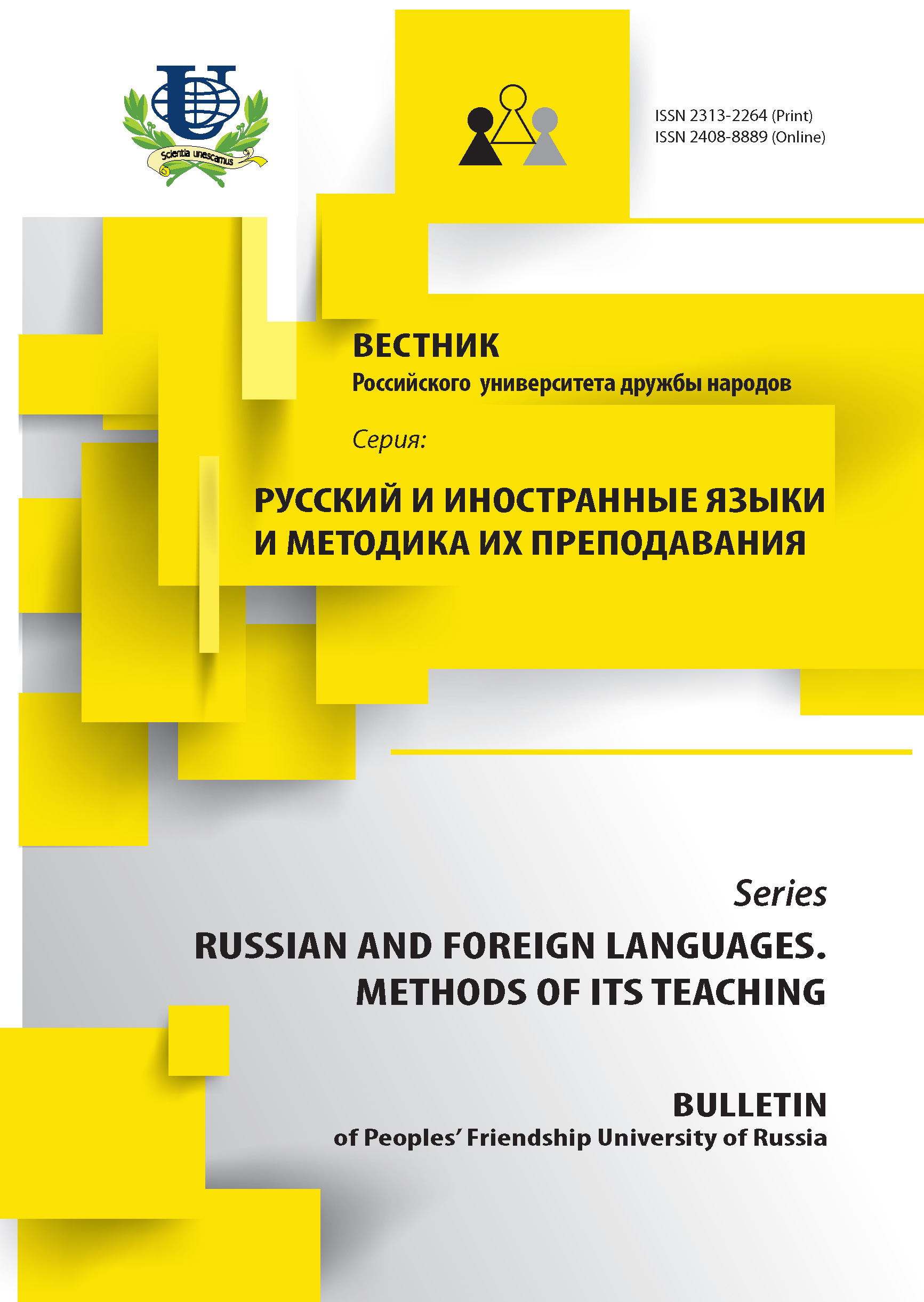No 3 (2008)
- Year: 2008
- Articles: 14
- URL: https://journals.rudn.ru/russian-language-studies/issue/view/606
Articles
Word about the senior to the colleague (by an anniversary of M.I. Isaev)
Russian Language Studies. 2008;(3):5-9
 5-9
5-9


 10-15
10-15


Changes of exotic of vocabulary as the source of the semantic renovation of the russian language on the boundary XX-XXI of the substances
Abstract
The paper examines changes of exotic lexicon in modern Russian (1986-2007). This description offers basic thematic groups of «former» exotic words, its semantic and connotative changes. These processes exert influence on development of Russian vocabulary of the newest period.
Russian Language Studies. 2008;(3):16-26
 16-26
16-26


 27-31
27-31


As regards improving of professionalizm of russian language instructors in russia poliethnic school
Abstract
There is a continuation of conversation (prev. PFUR Gerald, 2007, 1) about professional specifics of Russian Language instructors in polyethnic schools, their approaches, missions, and stages of professional improvements in the article. Instructor's determinism on improvement of concrete professional capacity is explained through specifics of education for Russian Language instructors.
Russian Language Studies. 2008;(3):32-36
 32-36
32-36


 37-42
37-42


 43-51
43-51


Metaphor in spanish colloquial language
Abstract
The author investigates the metaphor phenomenon in Spanish colloquial language. The difference between the metaphor of language and the metaphor of the colloquial speech is concreted. The author determines special features of the colloquial metaphor and its functions. Varieties of functions are explained using concrete linguistic material. Stable productive groups of Spanish colloquial metaphors are distinguished, according to their main subjects.
Russian Language Studies. 2008;(3):52-60
 52-60
52-60


Educational methods complex and its place in the renovation of the training process
Abstract
Article is dedicated to the development of the educational methods complexes, directed toward the formation of the innovation educational medium, which makes possible for foreign students to surmount difficulty, connected with the specific character of the meaningful side of the scientific style of the speech of a number of the specialties of humanitarian profile.
Russian Language Studies. 2008;(3):61-66
 61-66
61-66


 67-72
67-72


«From negol and goven to durdi» personal names of novgorod birch-bark letters as a linguistic and cultural phenomenon
Abstract
The article deals with some specific features of Old Russian personal names viewed in the process of their forming and functioning. These names became the object of linguistic research due to numerous birch-bark letters found in the course of archaeological excavations in the second half of the 20th and early 21st centuries.
Russian Language Studies. 2008;(3):73-79
 73-79
73-79


The review on the E.A. Krasin's reader «linguistics XX of the century: system and structure of language» (O.S. Chesnokova)
Russian Language Studies. 2008;(3):80-82
 80-82
80-82


N.J. Shtreker's monography «Innovative system of the profound philological preparation of teachers of initial classes» (N.V. Ryzhova)
Russian Language Studies. 2008;(3):83-85
 83-85
83-85


The review of the collection of analytical materials «Modern russian speech: the condition and functioning» (V.M. Shaklein)
Russian Language Studies. 2008;(3):86-88
 86-88
86-88















